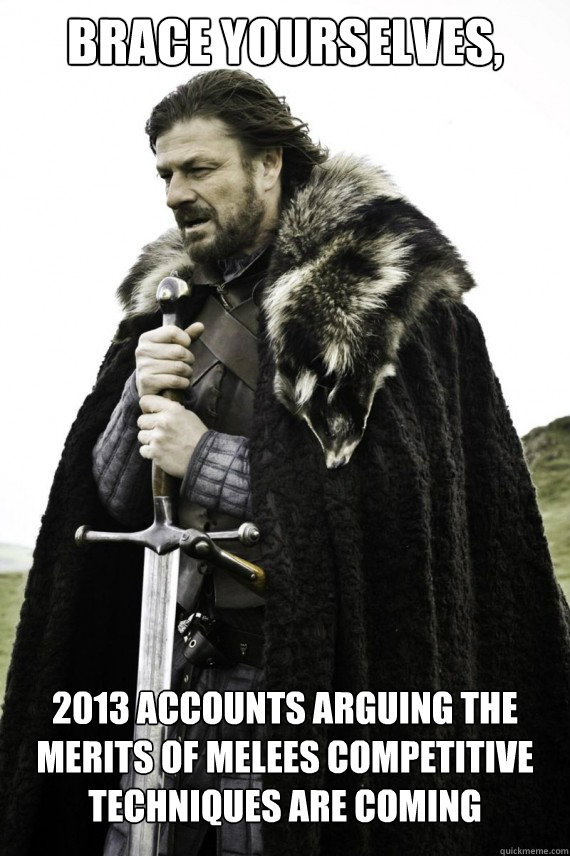Bones0
Smash Legend
the act of focusing on landing the l cancel means that you're not focusing as much on what is going to happen if the opponent is hit, or if she blocks it, or if it whiffs, etc
it also means that thanks to muscle memory you might decide to jump in without as much thought put into it. you may have instead chosen a completely different option that was more tactically sound.
I mostly agree with these statements, but you seem to have swapped the cause and effect of what is really going on. Players still have to worry a lot about if the opponent is hit or if he blocks or if it whiffs, but because they have to focus on the L-cancel, they can't just throw out an aerial and worry about how it interacts after the fact. They have to be aware as it happens and still be able to followup the aerial properly.
If we had one player with automatic L-cancels and one with manual L-cancels, I think everyone would agree that even if the manual L-cancelling player hit his L-cancels at 100%, he would be disadvantaged. Why? His character isn't being limited in any extra way, so obviously the issue would be that the player must focus on his aerials in a way that is conducive to consistently L-cancelling. He has to worry about how he interacts with his opponent, and these concerns cause him to aerial in ways that are a bit more suboptimal than his opponent who can basically play lazier and achieve greater success. If promoting competition among players is your goal, forcing them to focus on an increasing number of variables is usually a pretty good way to achieve that. I don't know much about StarCraft, but it certainly seems like a game where you have to keep a million things on your mind at all times. You also have to understand how those million things really work and affect each other so that when obscure scenario #10,458,972 occurs, the player with the greatest understanding and improvisation will come out on top. When you force players to focus on something like L-cancelling, instead of just easily reacting to what happens, they are forced to have more understanding of what's going on in the match because they have to ration their focus on performing the actual aerial.
Of course this would still be the case without L-cancelling; there's still other things to focus on. I'm simply pointing out how I feel requiring L-cancels affects the way players handle situations. It's subtle which is why I think the effect automatic L-cancelling would have on the game is so controversial in the first place. It's also why I suggest anyone seriously curious about it actually play with the automatic L-cancel AR code. Even with years of L-cancelling experience under my belt, it only took me about 20 minutes to really start to notice a change in my focus and gameplay. I'm sure over time it would be even more pronounced because I was still dedicating an awkwardly large amount of focus to my aerial landings simply because it's a ridiculously ingrained mental habit. I also felt the reverse effect of adding in L-cancels. Suddenly everything became much more methodical because I had to really think about how I was attacking as opposed to just attacking and reacting to everything as it occurred.



